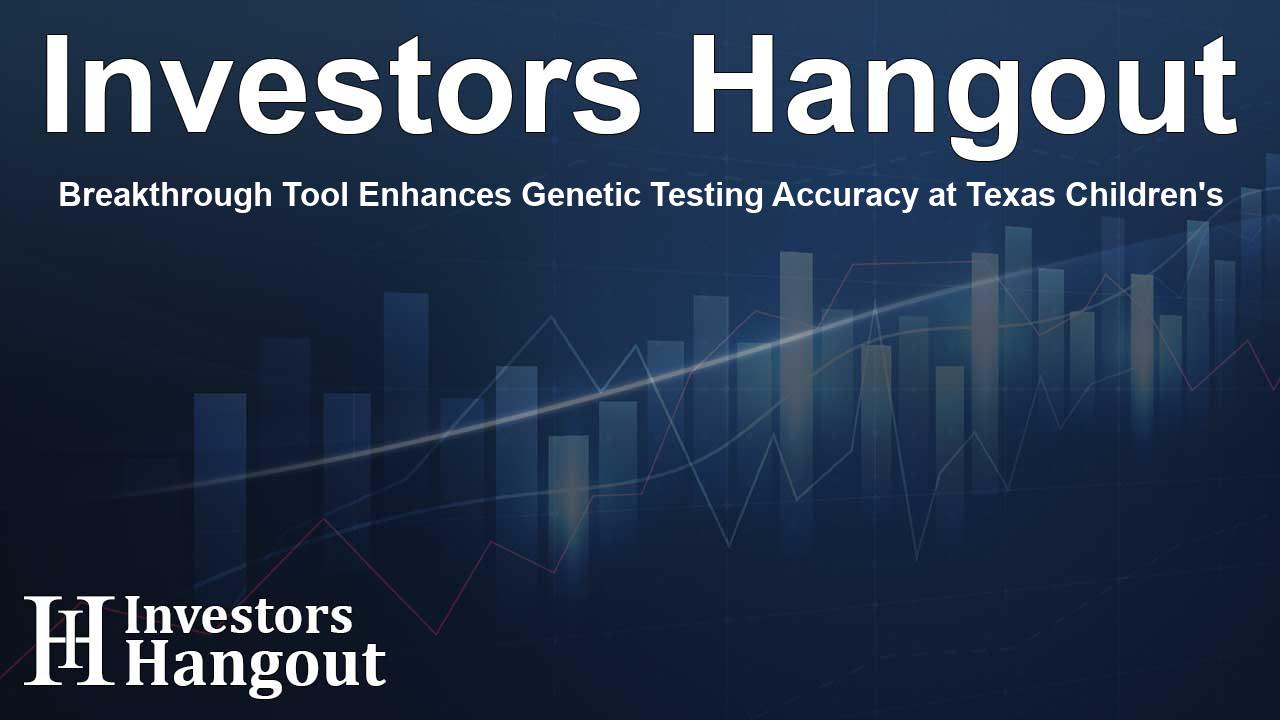Breakthrough Tool Enhances Genetic Testing Accuracy at Texas Children's

Groundbreaking Advances in Genetic Testing
Researchers at Texas Children's Neurological Research Institute (NRI) and Baylor College of Medicine have made significant strides in genetic testing accuracy. They have developed a novel tool within the Genome Aggregation Database (gnomAD), aimed at enhancing the precision of genetic diagnoses and patient care worldwide.
Innovative Methodology in Genetic Research
The researchers employed a concept known as local ancestry inference (LAI), which dissects the genome into ancestry-specific segments. This allows for more accurate assessments of genetic variations. Dr. Elizabeth Atkinson, an Assistant Professor in the Department of Molecular and Human Genetics at Baylor College of Medicine, leads this transformative project. She emphasized the importance of updating genomic resources to represent the full range of genetic variations.
Applications of Local Ancestry Inference
The methodology applied in this research looks closely at populations with mixed ancestry, particularly those identified as African/African American or Latino/Admixed American. Traditional methods rely on generalized population data, which can overlook crucial distinctions in genetic variants across different ancestral backgrounds. LAI provides a more subtle understanding, focusing on the variations within specific ancestry segments, such as African or European.
Impacts on Disease Diagnosis
Genetic testing plays an essential role in identifying diseases. If specific genetic variants are prevalent in the general population, they are often considered benign. However, when those variants are assessed across diverse ancestral backgrounds, the averages can become misleading, obscuring significant differences. The research team's findings indicate that many variants previously thought to be rare in global samples are, in fact, quite common in certain ancestral groups.
Clinical Implications of Findings
Dr. Atkinson pointed out the clinical ramifications of these differences, stating that these aren’t merely theoretical; they have real consequences for patient care. The group discovered that more than 80% of genetic sites exhibited a higher frequency in at least one ancestry-specific segment compared to previous data. Some of these variants crossed critical clinical thresholds established by the American College of Medical Genetics and Genomics (ACMG), potentially leading to a more accurate classification of variants and enhancing their diagnostic significance.
Public Accessibility and Future Directions
The newly refined ancestry-specific data is now publicly accessible through gnomAD, offering researchers, clinicians, and genetic testing labs a more reliable tool for understanding genetic variations. This will significantly enhance the interpretation of genetic tests across the globe.
A Holistic Approach to Ancestry
Dr. Atkinson reiterated the complex nature of ancestry, advocating for a nuanced perspective in patient diagnoses rather than relying on simplistic categorizations. This ongoing research represents a shift towards a more refined understanding of how genetic background shapes health outcomes.
About Texas Children’s
Texas Children's is a leading nonprofit healthcare organization dedicated to creating a promising future for children and women globally through patient care, education, and innovative research. Consistently ranked among the best children's hospitals in the nation, Texas Children’s is renowned for its expertise across pediatric and women's health services. The network includes various specialized facilities and programs, such as the Texas Children's Duncan NRI and unique pediatric care programs that cater to diverse community needs.
Frequently Asked Questions
What is the purpose of the new tool developed by Texas Children's researchers?
The tool aims to enhance the accuracy of genetic testing, providing better diagnostic insights for diverse patient populations.
How does local ancestry inference (LAI) improve genetic testing?
LAI analyses genetic variants in segments specific to different ancestries, leading to more precise assessments rather than generalized averages.
What are the clinical implications of the study's findings?
The findings have the potential to improve the classification of genetic variants, affecting how clinicians interpret test results and diagnose conditions.
Where can the ancestry-specific data be accessed?
The refined data is publicly available through the Genome Aggregation Database (gnomAD), aiding researchers and healthcare professionals worldwide.
Why is a nuanced understanding of ancestry important in genetic testing?
A nuanced understanding allows for more accurate diagnoses that take into account the diverse genetic backgrounds of individuals.
About The Author
Contact Evelyn Baker privately here. Or send an email with ATTN: Evelyn Baker as the subject to contact@investorshangout.com.
About Investors Hangout
Investors Hangout is a leading online stock forum for financial discussion and learning, offering a wide range of free tools and resources. It draws in traders of all levels, who exchange market knowledge, investigate trading tactics, and keep an eye on industry developments in real time. Featuring financial articles, stock message boards, quotes, charts, company profiles, and live news updates. Through cooperative learning and a wealth of informational resources, it helps users from novices creating their first portfolios to experts honing their techniques. Join Investors Hangout today: https://investorshangout.com/
The content of this article is based on factual, publicly available information and does not represent legal, financial, or investment advice. Investors Hangout does not offer financial advice, and the author is not a licensed financial advisor. Consult a qualified advisor before making any financial or investment decisions based on this article. This article should not be considered advice to purchase, sell, or hold any securities or other investments. If any of the material provided here is inaccurate, please contact us for corrections.
